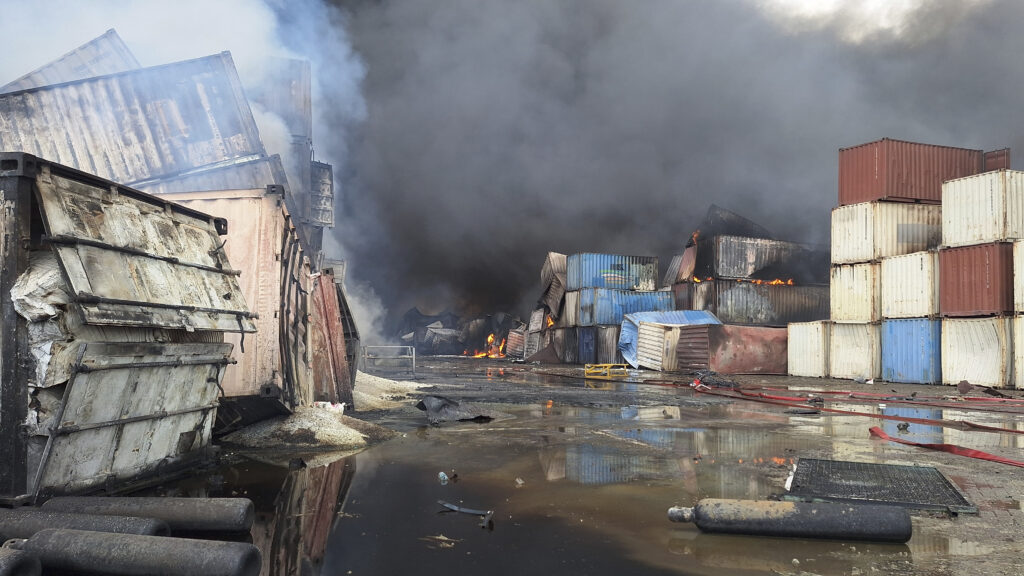Israel has denied involvement in the massive explosion ripped through Iran’s largest port on Saturday, killing at least 40 people and injuring over 1,000 others.
The blast shook the Port of Shahid Rajaee in Bandar Abbas, a critical hub on the Strait of Hormuz. Thick plumes of smoke towered over the strategic facility after the blast, which initial reports suggested may have involved chemical materials linked to ballistic missile production. Iranian officials have remained tight-lipped about the true cause, saying only that the explosion had no connection to the country’s oil industry.
Hossein Zafari, a spokesperson for Iran’s crisis management agency, told local media that “chemicals inside the shipping containers” were to blame. However, Western security analysts and ship-tracking data point to a more alarming possibility: that the chemicals involved included sodium perchlorate rocket fuel, part of a shipment previously offloaded at the port in March, according to private security firm Ambrey.
The Financial Times had earlier reported that China sent Iran two shipments of rocket fuel to replenish Tehran’s missile arsenal following unprecedented attacks on Israel in October 2024. The orange-tinted smoke seen billowing over the port—a signature marker of burning nitrogen compounds, a key ingredient in rocket propellants—has only fueled further speculation.
The Shahid Rajaee Port is no ordinary facility. Handling 85% of Iran’s maritime cargo and serving as a critical channel for arms transfers to the Houthis in Yemen, it represents a major artery of Iran’s regional power projection. The explosion’s disruption to operations could have significant ripple effects.
Iranian media reported Sunday that fresh fires reignited at the scene after additional containers detonated, even as authorities claimed the initial blaze had been brought under control. Some of the injured were rushed over 650 miles to Tehran for emergency care, as the full scale of the disaster continues to unfold.
The devastation in Bandar Abbas has drawn comparisons to the 2020 Beirut port explosion, which killed more than 200 people and was similarly linked to the improper storage of explosive materials—reportedly by Hezbollah operatives.
While Iran has not publicly acknowledged receiving the recent rocket fuel shipments, the incident comes at a time of heightened strain on Tehran’s military capabilities. According to Cmdr. (res.) Eyal Pinko, a senior researcher at the Begin-Sadat Center, Iran’s missile stockpile has been severely depleted following two massive missile barrages against Israel over the past year.
On Oct. 1 and again on April 13, Iran unleashed hundreds of ballistic missiles and drones at Israel, including its most advanced projectiles such as the Emad, Khorramshahr 2, and the suspected Fatah 1 hypersonic missile. In both attacks, Israel’s Arrow 3 system, bolstered by U.S. and allied assistance, successfully intercepted the majority of threats.
Israel struck back forcefully on Oct. 26, carrying out broad retaliatory raids on Iranian air defenses, missile production facilities, and nuclear-linked sites, including the Parchin complex.
(YWN World Headquarters – NYC)












One Response
Just wait. They will find a way to blame Israel.